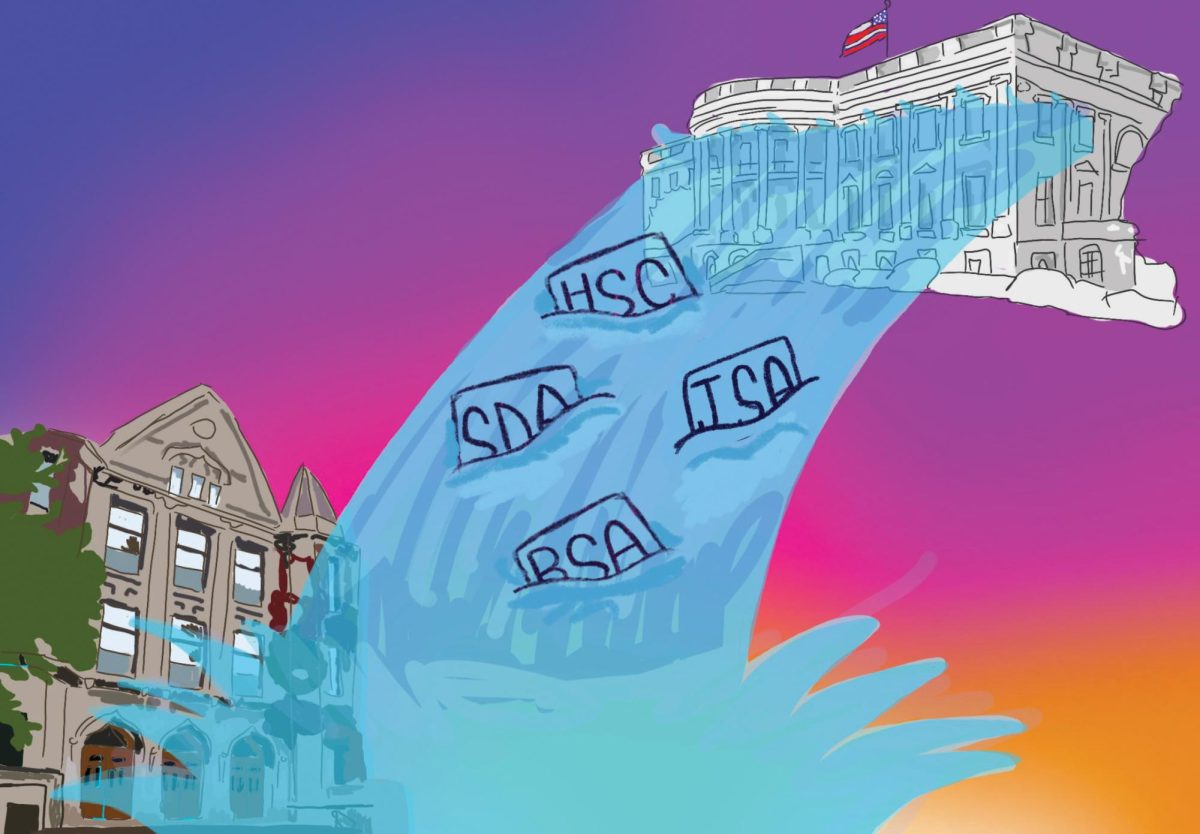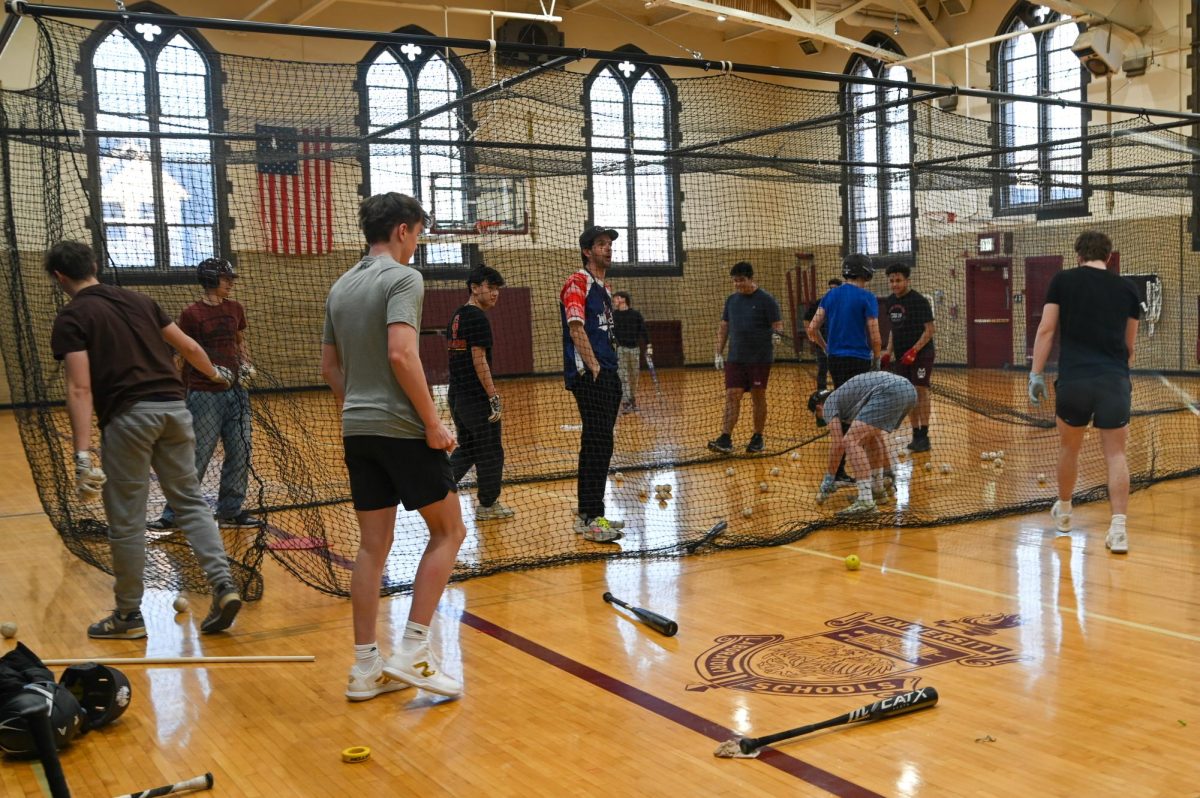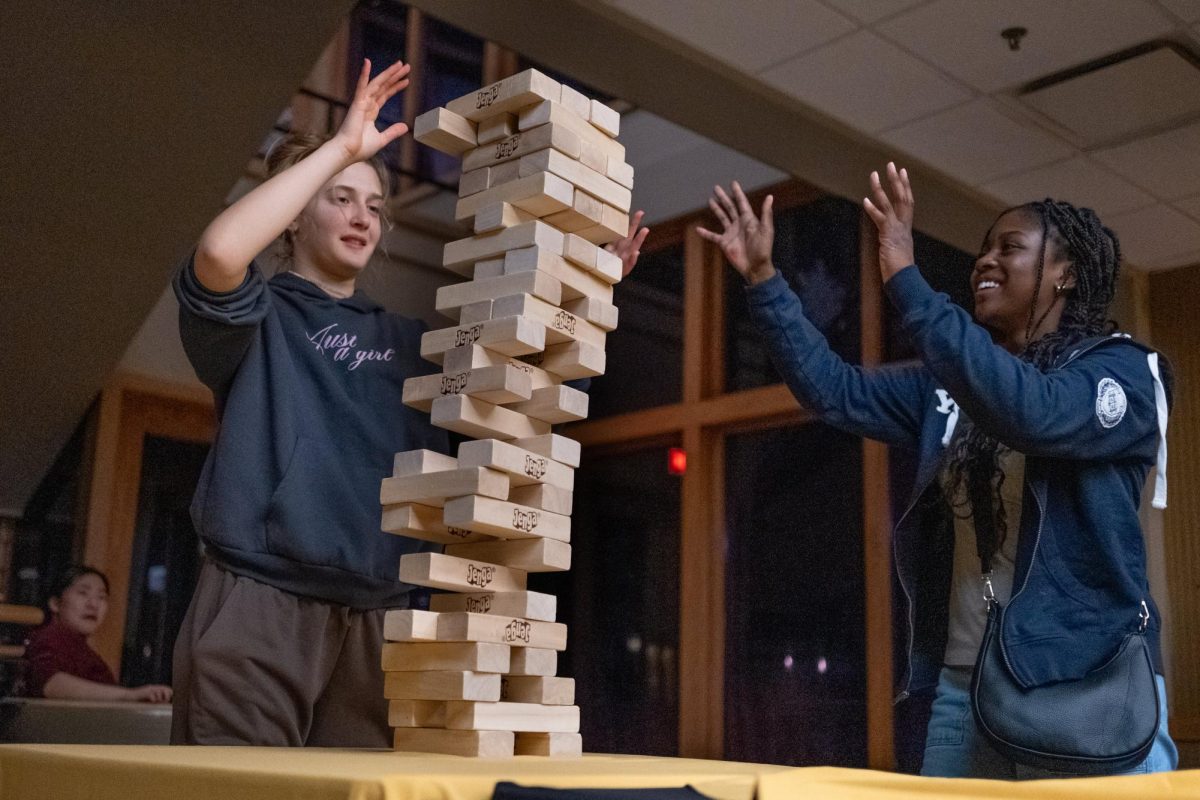Esports proves growing and successful industry
Leo Mehring-Keller, sophomore, plays “Overwatch” on his gaming console at home. He is one of many gamers who contribute to the multi-billion dollar industry of esports.
January 16, 2020
Fans pack the stands and lights glare across the arena as two teams, locked into their game, fuel the atmosphere with excitement. A hanging jumbotron closely displays the action for the audience, while an announcer follows the match in great detail.
Each player’s slight movements and mental strategy, perfected by hours of practice, is the largest difference in the contest.
This is a championship match being displayed to over 100 million viewers across the world — more than the Grammys, Emmys and Oscars combined. This isn’t the Super Bowl. Not even the Champions League. This event is the 2019 League of Legends World Championship final.
Over the past three years the rise of competitive gaming, known as esports, has taken the entertainment business by storm. The best-of-the-best from all varieties of video games — from first-person shooters to user-controlled basketball games — are able to compete in esports tournaments, leagues and other in-game competitions.
U-High sophomore Leo Mehring-Keller competes with Atlas, a team that participates in competitive “Overwatch” tournaments nearly every weekend. He said that although it doesn’t get in the way of his priorities, esports takes strategy and mental toughness.
“I wouldn’t say it [interferes] too much because I’ve got flexibility but it is kind of a commitment,” he said. “It’s definitely mentally really draining,” Leo said.
Many tournaments are broadcast on online streaming services, with Amazon’s Twitch and Microsoft’s Mixer being the most widely used platforms. The Overwatch League is among the more popular leagues. It and other video game competitions have even made their way into national TV, with the majority of their coverage coming from ESPN.
Esports revenue has also grown exponentially as of the last few years, with no sign of slowing. Business Insider Intelligence projects esports revenue to surpass $1.5 billion by 2023, while investments into competitions went up to $4.5 billion in 2018 from $490 million the year before, showing a dramatic increase in overall esports business reliability.
Chicago’s Robert Morris University, along with a growing amount of colleges around the United States, give scholarships to a number of esports competitors. In 2014, RMU was the first college to hand out scholarships to League of Legends players.
Multiple game-specific teams of players and coaches comprise the RMU esports roster. They compete in competitions that are held in a range of locations, including Wintrust Arena which can hold over 10,000 spectators.
Arenas dedicated to esports, complete with a large jumbotron and seating areas for players, have also become expensive, popular projects. Atlanta, a city popular in the esports community, is opening a 13,000-square foot esports arena in the Mall of Georgia.
Despite its large popularity among younger people, 75% of adults don’t play or watch competitive esports, according to The Washington Post. Adding to these numbers, 78% said they’d rather watch a live sporting event than a live esports event.
Senior Kendrick Xie plays “Fortnite” with a designated duo partner through different competitions that are offered in-game almost every month. He said esports didn’t need to be labeled a sport to continue to thrive.
“I would consider it competitive,” Kendrick said. “The viewers are there still. There was a ‘DOTA 2’ final that had more viewers than the NBA finals. It doesn’t have to be considered a sport to be taken seriously.”
While 10 years ago video games may have been considered a casual pastime, now their competitions fill arenas with thousands of fans. From its wild popularity to the potential to earn millions of dollars, esports has transformed video games from a pastime to an opportunity to showcase unappreciated talent.































































